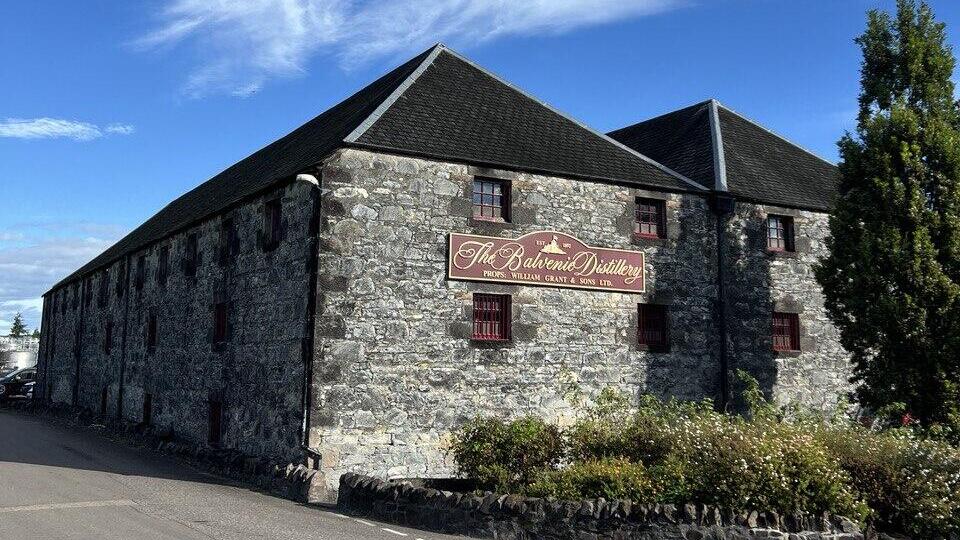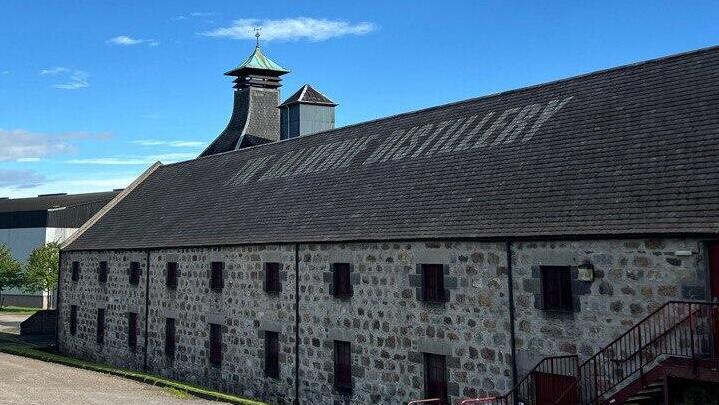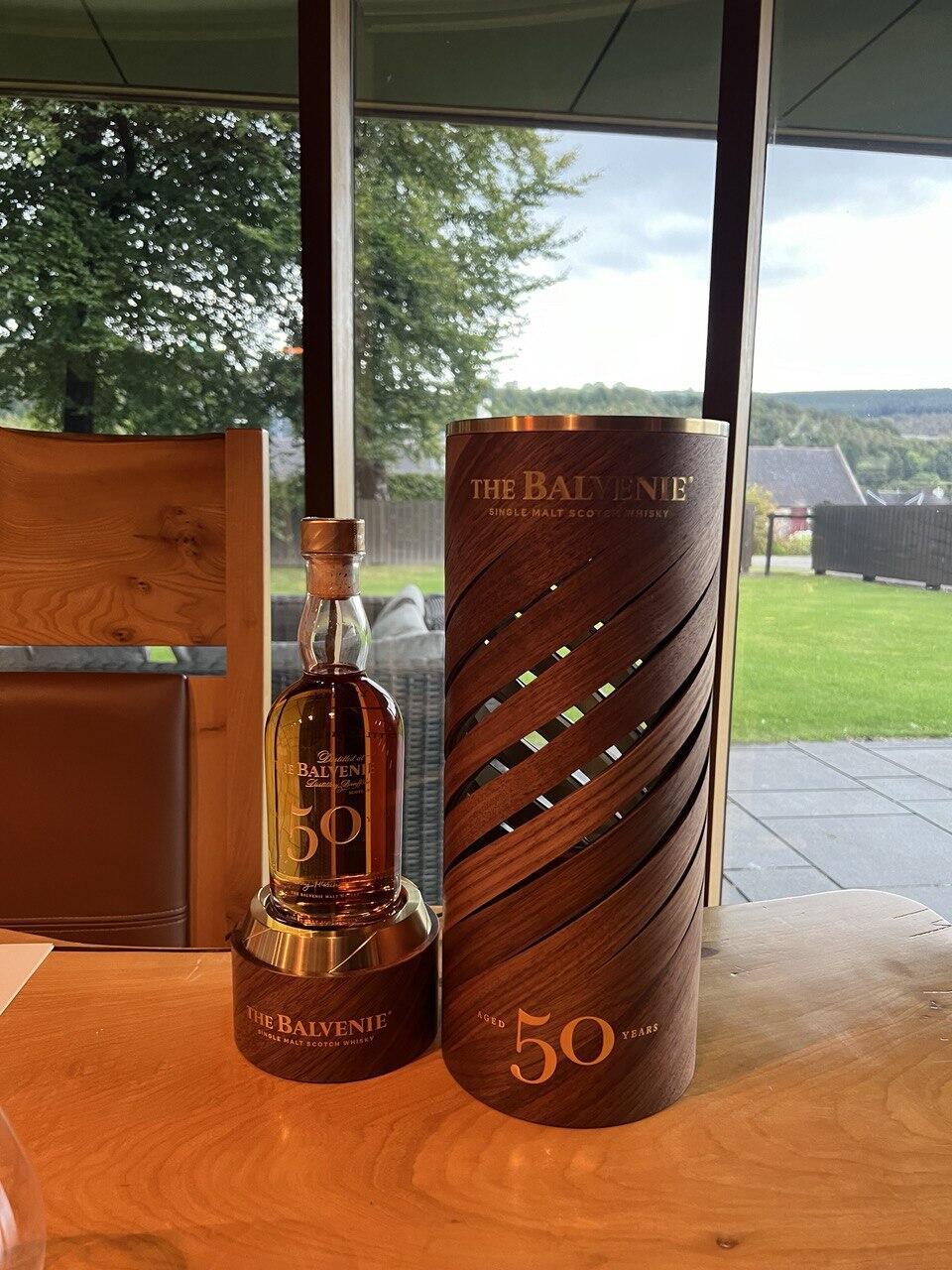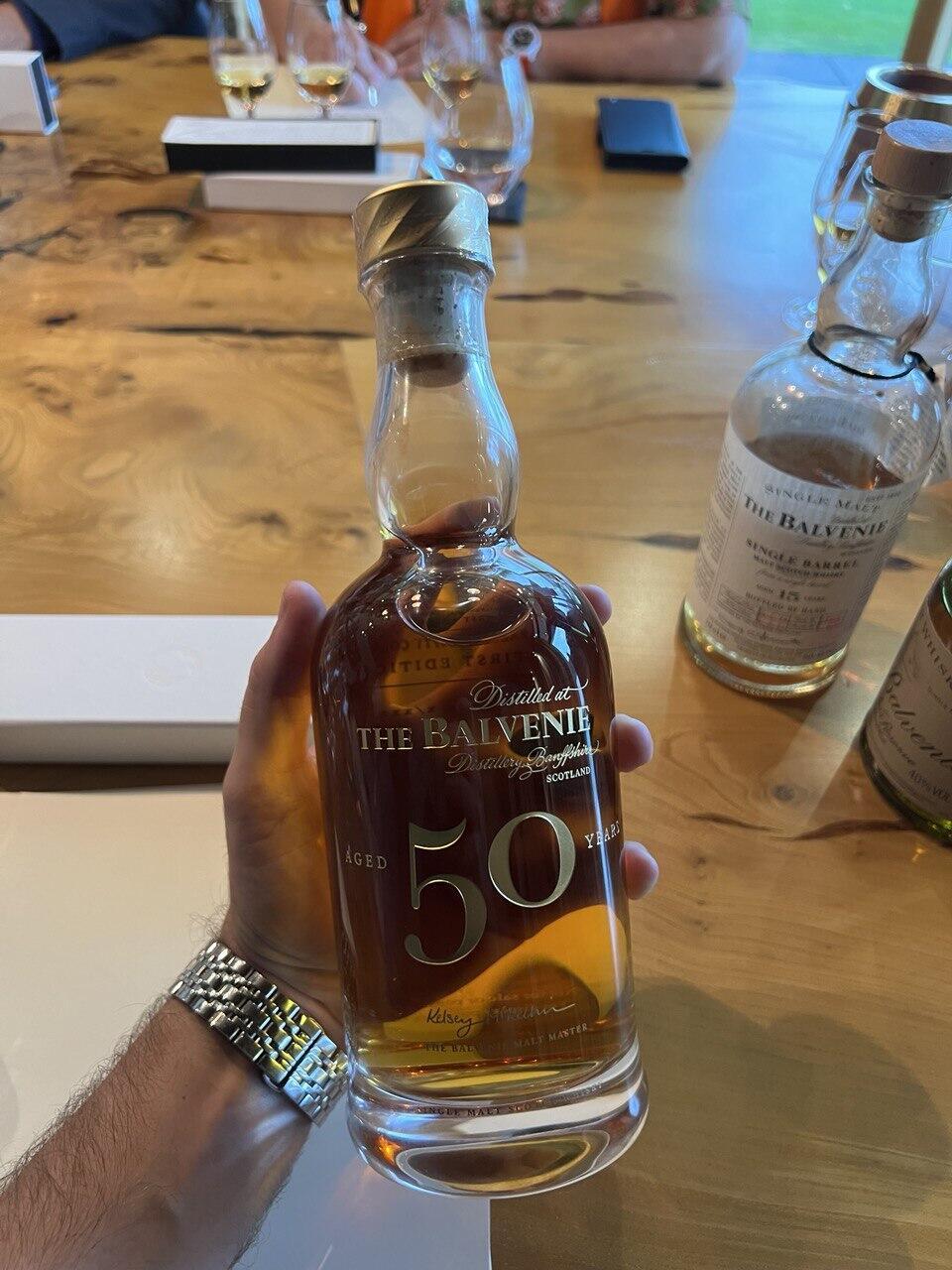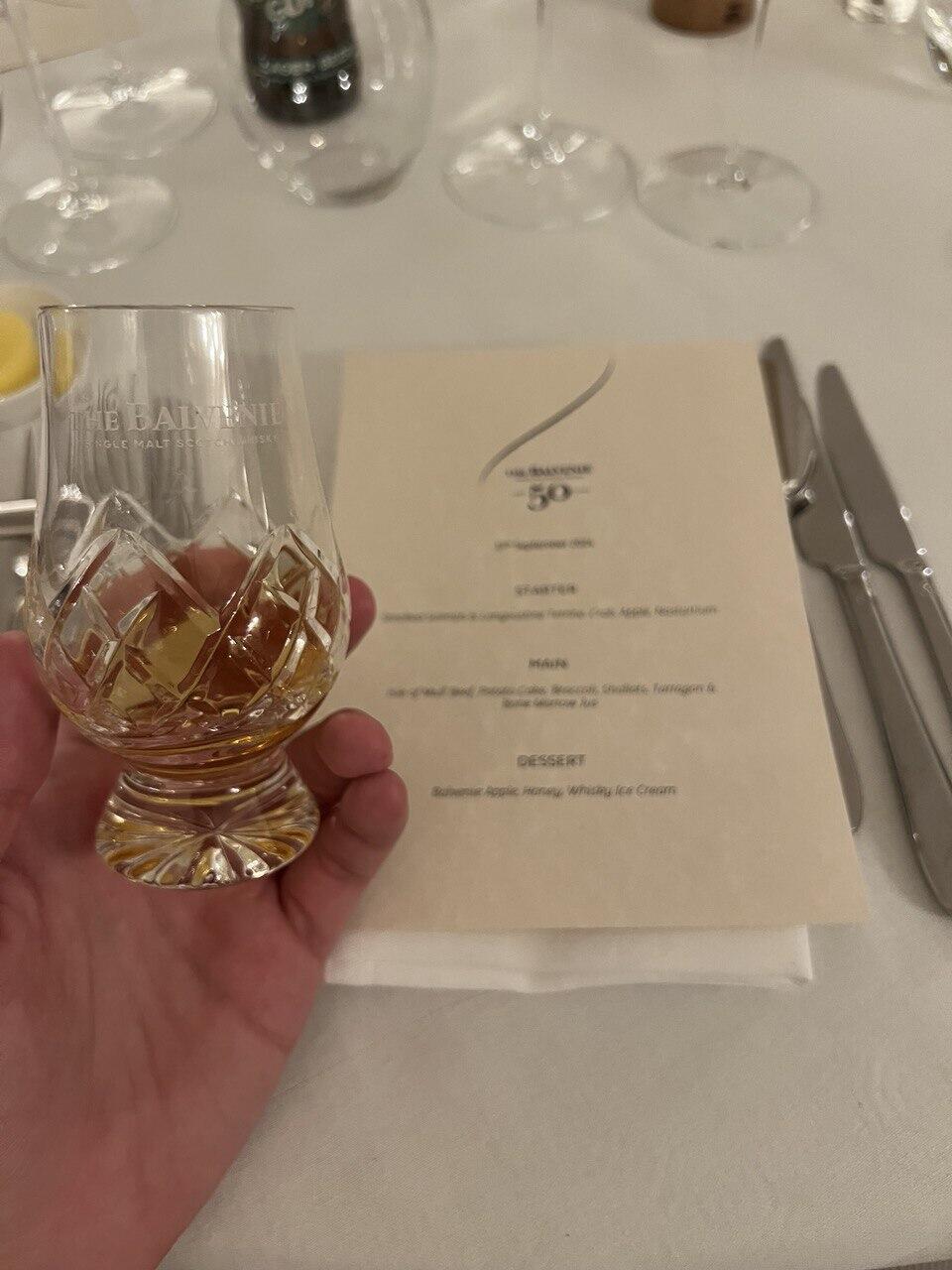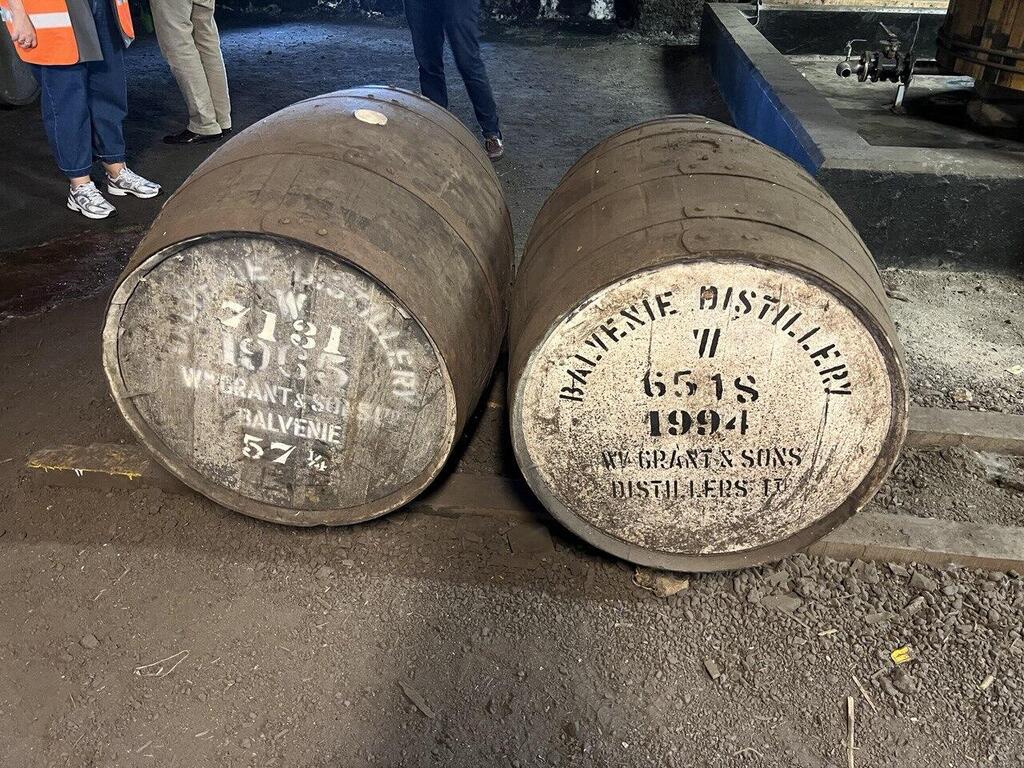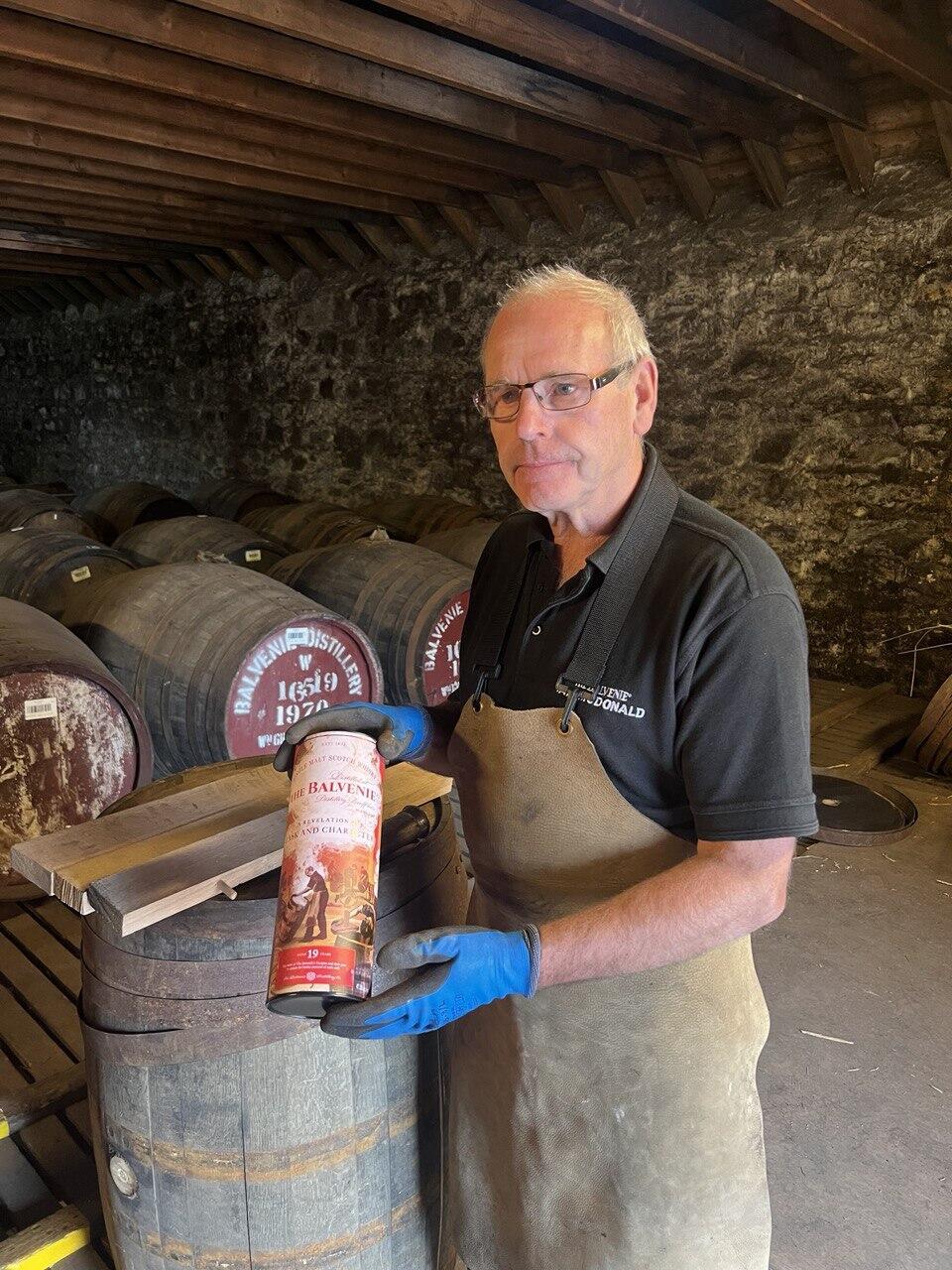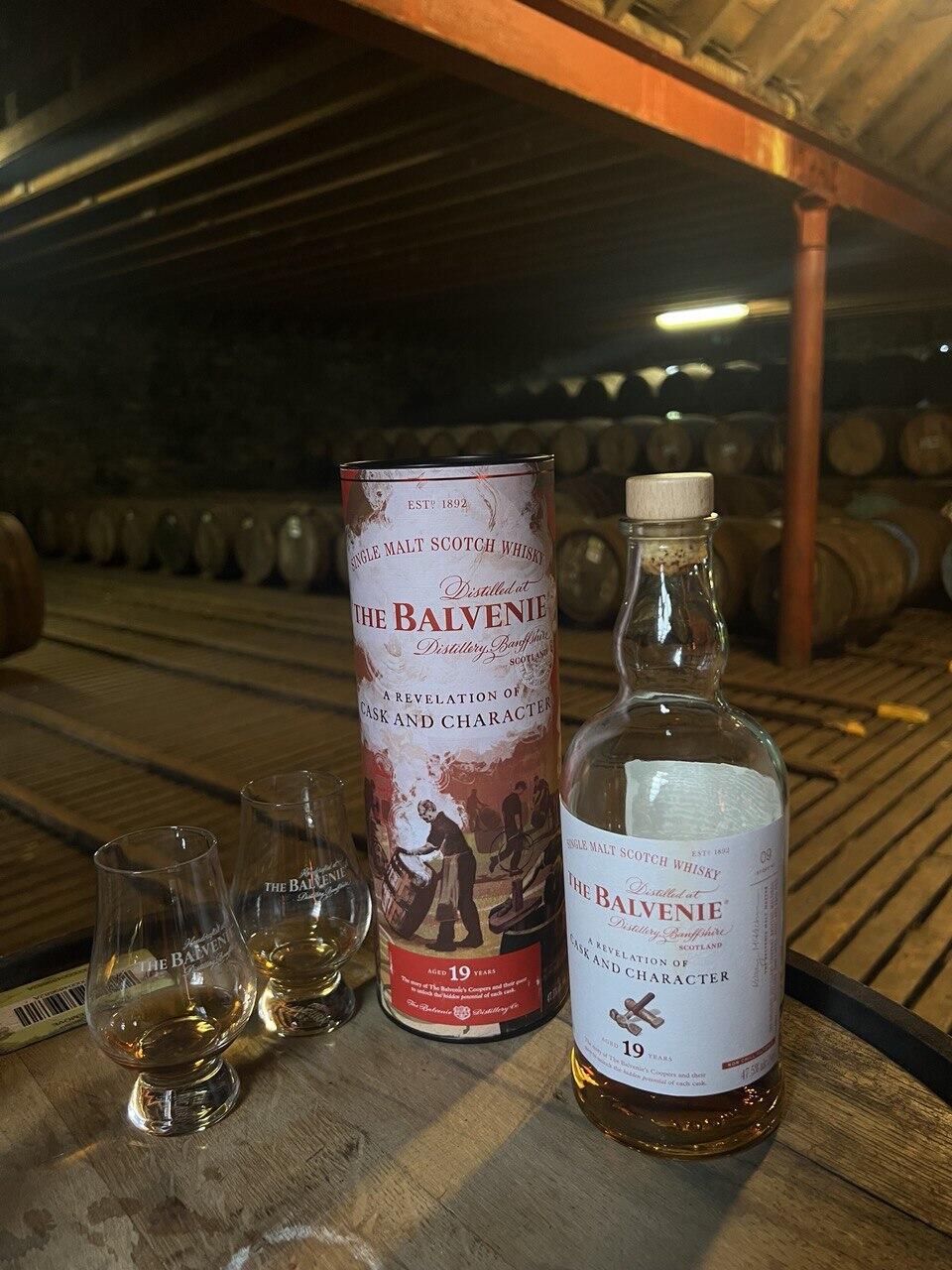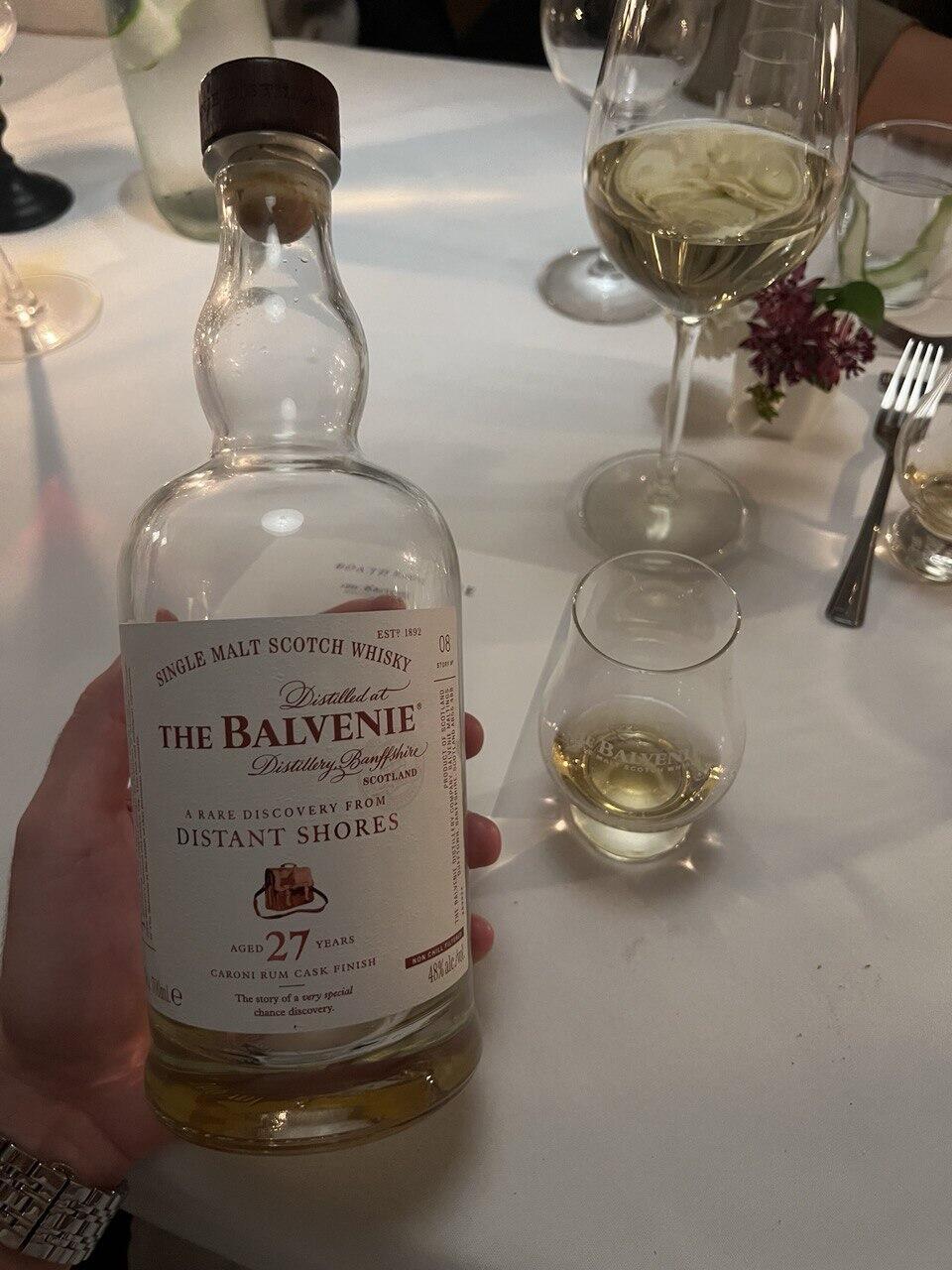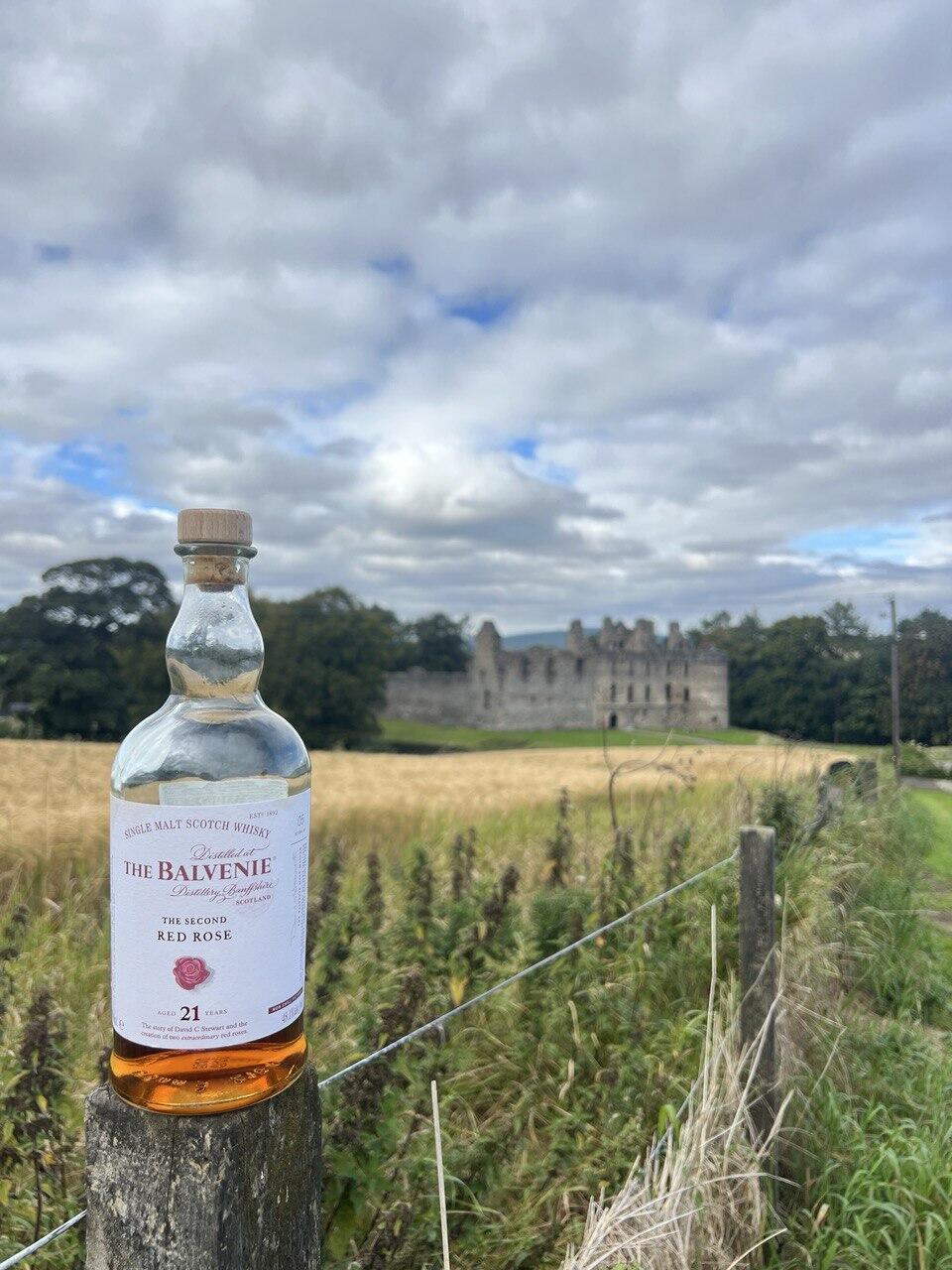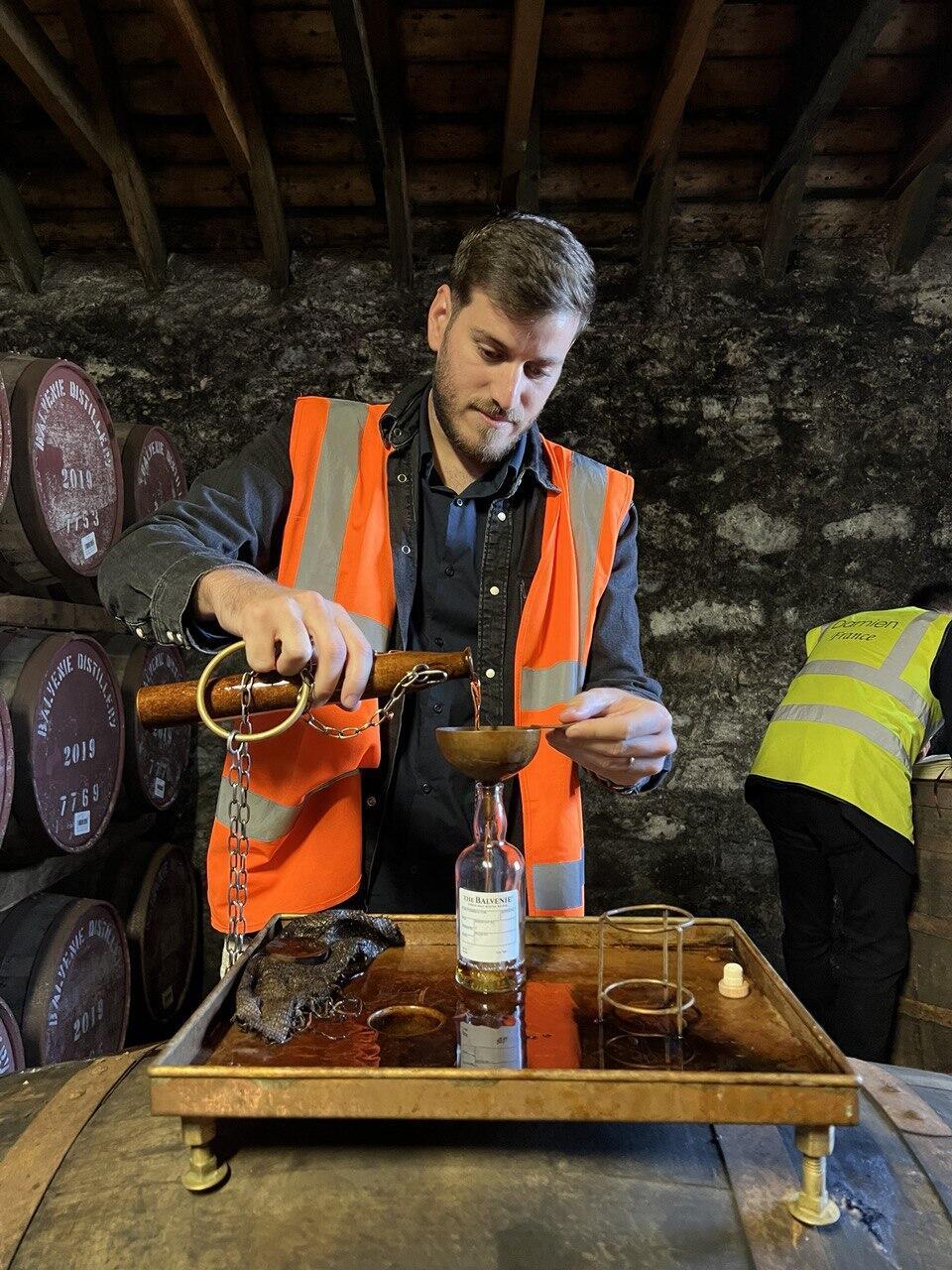In recent decades, the world has seen revolutions that have reshaped it, leaving us to wonder about the future. But a glance back raises questions about the loss of innocence, tradition and purity. Rare are the untouched fragments of history that remain today, yet I found one in Scotland.
Nestled at the edge of picturesque villages, amidst breathtaking landscapes and vast, open green fields, stands the Balvenie Distillery. Founded in 1892, the distillery seems nearly unchanged 132 years later. The massive building remains as it was, with walls that tell the story of a bygone era. It feels as though history’s revolutions have passed by, leaving this place undisturbed.
125 bottles worldwide
In 1972, Ian McDonald, Balvenie’s cask manager, and Dennis McBain closed a European oak cask containing a whisky crafted by David Stewart, Balvenie’s malt master of 60 years, who retired last year. It’s hard to believe they imagined they would reopen it half a century later, yet that’s precisely what happened. This cask, producing only 125 bottles—each crafted and packed with meticulous care—is itself a piece of history.
Now, more than 50 years after the cask was sealed, and just before the launch of the Balvenie Fifty Collection, a group of journalists from Israel, France, Germany, Poland and England gathered at the distillery to taste the whisky. Beyond this cask, two more will be opened in the next two years, with each limited release yielding only 125 bottles.
Just before tasting, an elegant aroma rose from the whisky glass, carrying deep notes of fruit, delicate spices, nuttiness and cedar wood. The tasting itself revealed an exceptionally rich flavor profile with hints of caramelized fruit, ginger, vanilla, spices and a touch of citrus. The finish of this whisky, with an alcohol content of 53.2%, was long, rich and warm.
The story of the Balvenie brand is also reflected in the whisky’s packaging, meticulously designed and weighing 14.5 kilograms (32 pounds) alongside the bottle. This stunning case, crafted in Cumbria, northwest England, comprises over 100 individual elements, including four layers of spiraled wood that require extreme patience to assemble, and a 14-karat gold finish.
This rare edition, with only one bottle available in Israel, will be sold by Global Wine & Spirit, Balvenie’s importer and distributor in Israel, for 350,000 shekels ($94,500). Beginning November 19, interested buyers can submit purchase bids through a dedicated website.
“Each release in this collection is a testament to the craftsmanship that has defined our spirit over the last 50 years,” says Kelsey McKechnie, the master blender who succeeded David Stewart. “The unique qualities of these rare casks come together to create an extraordinary experience.”
Tour among giant barrels
William Grant founded the Balvenie distillery in Scotland in 1892 on the site of a former castle called Balvenie New House. Since then, the distillery has remained at its original location, striving to preserve the structure as it was built in the late 19th century.
Adjacent to the distillery are sprawling barley fields, making Balvenie the only distillery in Scotland still growing its own barley. Nearby stands the Glenfiddich distillery, also owned by the Grant family.
Our tour of the traditional distillery began among the massive barrels holding the initial whisky brew, during fermentation. In these barrels, barley is mixed with sugar and boiling water, forming a sweet liquid. Once the liquid is prepared, it undergoes distillation in 11 large tanks called Spirit Stills.
When Balvenie's experts determine that the product has reached the desired quality, it is transferred to casks, with labels detailing the whisky’s specifics, including the year and cask number.
Hundreds of casks are stored in a large, cool warehouse, some dating back to 1965, others from the 1970s and many from the 1990s. Over the years, countless casks at Balvenie have been handled by Ian McDonald, who sealed the 50-year edition cask himself. McDonald has worked at Balvenie since 1969 and, by distillery estimates, has prepared around a quarter-million barrels during his 55-year career.
Crafting the casks is a meticulous and calculated process, requiring attention to every detail to ensure a perfect seal with no leaks. Each cooper (barrel maker) prepares about 20 small or 10 large casks per day on average. In tribute to the coopers' hard work and dedication, Balvenie released a special edition whisky featuring Ian McDonald's image carrying a cask on the packaging.
Between whisky and rum
The first bottle we tasted upon arrival was a whisky from 1972, aged for eight years starting in 1964, with an alcohol content of 43%. Though eight years may seem brief by modern whisky standards, it’s important to understand that perceptions around whisky aging were quite different at the time. Back then, whisky aged in casks for 8-10 years was considered very mature. Before even tasting it, the aroma rising from the glass was intense and intriguing—fruity and very sweet for an eight-year-old whisky, with a flavor that lingered on the palate for a long time.
Whisky doesn’t always stay in the same barrel, and its flavor reflects this process. David Stewart, the master distiller who had a profound impact on the Balvenie distillery and the whisky world, introduced the practice of cask finishing, which diversified and enriched whisky flavors.
A tasting of the whisky known as Distant Shores demonstrated this technique: after aging for 20 years in one cask, it was transferred to a rum cask for an additional seven years, creating new and intriguing layers of flavor.
Another whisky we tasted, made using a similar technique, was Red Rose. This whisky aged for 21 years before spending six months in a cask previously used for red wine, giving it a unique color and an extra layer of taste.
During the distillery tour, we even had the chance to pour whisky straight from the barrels and sample it ourselves. We tasted two casks: one American oak barrel containing whisky with an alcohol level of 55.8% that had aged for 12 years, and a European sherry cask with whisky at 66.3% alcohol that had aged for 11 years. By the end of the tour, everyone was feeling a bit tipsy.
These are unusual days to be drinking aged whisky in a distant place with a group of international journalists. Interestingly, when they heard the word “Israel,” everyone was quick to ask about life in a country that has been at war for a year—no speeches, no formalities.
Amid the elegant rooms of an ancient castle, they listened to explanations about the Israeli Defense Forces, its values and the hostages. Perhaps in a far-off land, surrounded by fields and barrels, it’s easier to listen and understand. Or maybe it was just the whisky.
- The writer was a guest of Balvenie in Scotland
Get the Ynetnews app on your smartphone:



